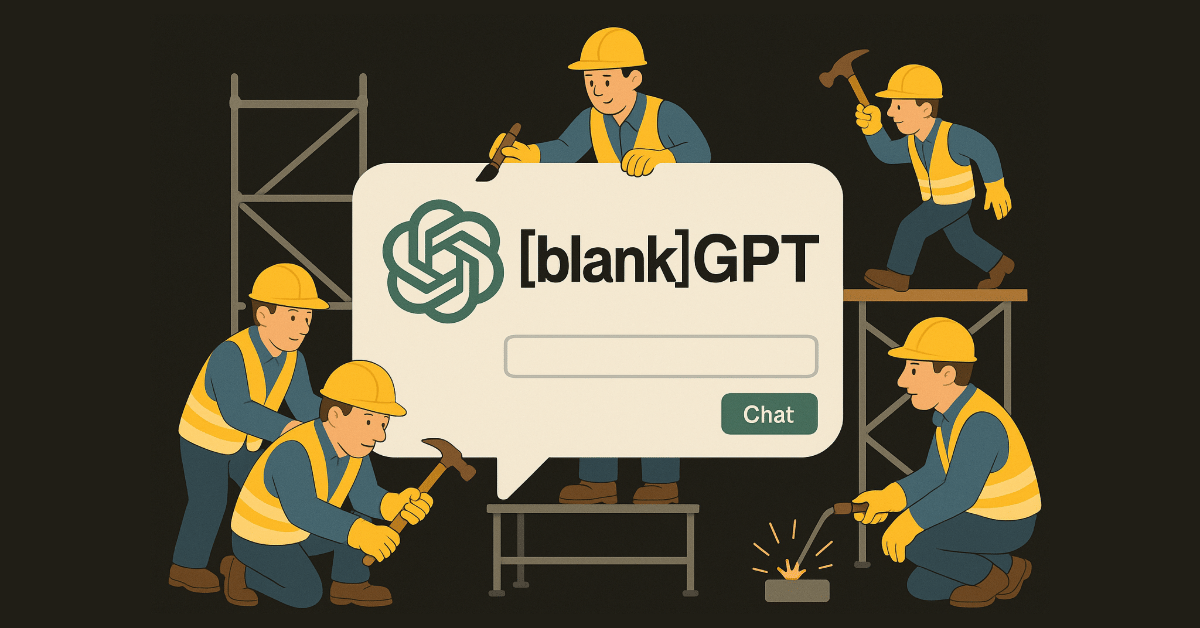
I’m not sure if y’all are the same, but all I see everywhere at the moment are headlines about AI-influenced brands.
“Wendy’s launches burger-ordering chatbot”, “Nike drops AI trainer assistant”, and “Estee Lauder builds skincare GPT” are just some of my favourites. It appears everyone is scrambling to build an AI version of themselves, which made me wonder, is this the next must-have brand channel? Or just the Metaverse in new clothes? Because if I’m honest, not every brand needs a talking chatbot. But then again, done well, a branded GPT can go from gimmicky to genuinely really useful, even in relationship-building. So maybe the real question is: does your (hypothetical) GPT do something people actually want?
The GPT rush is happening now.
With tools like OpenAI’s GPTs and Anthropic’s Claude APIs becoming easier to customize, it’s suddenly possible to spin up a bespoke brand assistant in a matter of days. No dev team? No problem. Just upload some knowledge, write a prompt, and poof: you’ve birthed an AI intern. Helloooo, dystopia x.
And marketers loooove a new channel. Especially one that feels innovative in the boardroom. But a custom GPT isn’t content, it’s infrastructure. So, it actually has to do something, otherwise it’s really just an expensive novelty bot.
So then, when does a branded GPT actually make sense?
When you have a rich knowledge base that customers constantly search for.
Skincare routines, financial advice, travel bookings, recipes, product comparisons. You get the gist.
When you offer services that benefit from decision support.
Like helping someone pick the right sneaker, insurance plan, or shampoo for curly hair.
When your audience wants a so-creation or co-pilot experience.
Recipe builders, AI stylists, wellness coaches, interior design tools. All of these become way more engaging with a smart, on-brand assistant behind them.
When you’re extending an existing brand voice or personality.
This works best if your brand already has a distinct tone (Duolingo, Monzo, Liquid Death). A GPT can amplify that into a 1:1 experience.
When you probably shouldn’t bother:
Your brand has nothing new to say that a website or FAQ can’t cover.
You’re making one just to make one.
You don’t have the resources to train, test, and maintain it.
It’s just going to regurgitate your tone of voice doc and hope for the best.
Remember that most people don’t really want to chat with a brand. We all have enough of a hard time maintaining friendship, relationships and client emails in this day and age (speaking for myself lol). Consumers want help. Answers. Ideas. Entertainment. If your GPT isn’t delivering at least one of those it's more cosplay than actually useful.
3 things to make a GPT actually useful:
1. Utility first, personality second
Cool tone won’t save you if your bot can’t answer basic questions. Start with the task, then layer in the sass.
2. Contextual intelligence
Can it remember preferences? Adapt tone? Pull relevant info from product libraries or content archives? That’s what moves it from chatbot to assistant.
3. Invisible UX
If your GPT makes people think harder than your nav bar does, it’s a no from me, dawg. Keep it focused. Don’t try to make it do everything. Give it guardrails and clarity.
The potential risk? Becoming the next “virtual brand island”.
Remember when every brand launched an NFT or built a weird metaverse activation no one asked for? Yeah. This could be that again. A branded GPT without a purpose isn’t innovation. It’s clutter.
The opportunity? Build the next thing people actually need.
My dad always said, if you’re going to do it, do it right. So, make a GPT that:
Helps people use your product better
Turns dense info into something digestible
Personalises the experience in a way your website can’t
Extends your brand’s actual value, not just its voice
In a few years, branded AI assistants will likely be as common as apps or FAQs. But right now, most of them are solving for novelty, not need. Don’t be that guy.
-Sophie Randell, Writer
Not going viral yet?
We get it. Creating content that does numbers is harder than it looks. But doing those big numbers is the fastest way to grow your brand. So if you’re tired of throwing sh*t at the wall and seeing what sticks, you’re in luck. Because making our clients go viral is kinda what we do every single day.
